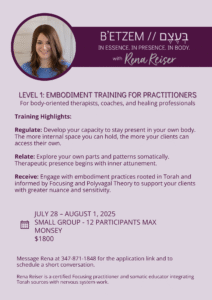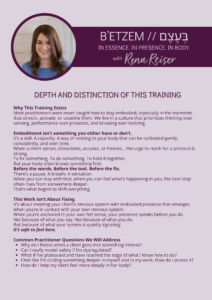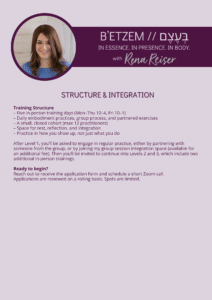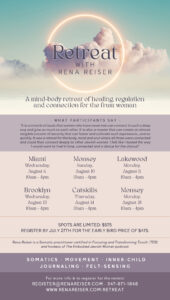Are you a double-speeder?
Why Slowness and Quiet Can Be So Uncomfortable
I’ve received feedback on my podcast and classes that I speak slowly and how some people find it so irritating that they double-speed me. And I’m fine with that; I do the same sometimes when I want to save time or someone is talking too slowly for my taste.
As an aside, I’d like you to know that when you say I speak too slowly, you’re actually giving me one of the greatest compliments ever! I used to speak very quickly, and with a slight stutter, and as I’ve done my own work, my speech has shifted too.
But when it comes to things like my meditations, or when I’m trying to go deeply into an idea, there’s a reason I slow down.
When people complain about the slowness, my ears perk up. I’m not offended, but curious. I wonder: What happens in that person when things get slow or quiet? What is it about silence or slowness that is hard to tolerate?
- If you’re a practitioner, what happens when your client goes quiet, when they turn inward and pause? Do you feel the urge to fill the space, or can you hold it?
- And as a client, or any person moving through life: when you’re alone and the house is quiet, do you instinctively turn on music, a podcast, an audiobook, or get busy doing something?
When we can’t tolerate quiet, stillness, or slowness, it often reflects some kind of nervous system dysregulation. The environment we’re in isn’t matching our internal state, and that mismatch can feel overwhelming. Our nervous systems might be anticipating chaos, and when instead we’re met with stillness, wires get crossed. The nervous system reads it as unsafe.
It’s Not a Conscious Choice. It’s Automatic
This reaction isn’t usually conscious. We don’t intentionally say, “This is too slow, I’m going to interrupt it.” It’s an automatic nervous system response. Until we bring awareness to it, we’ll continue filling in silence, speeding things up, or avoiding stillness without realizing why.
The First Step Is Awareness
When someone begins to notice their discomfort with quiet or slowness, instead of automatically reacting to it, something shifts. We can start to map out our lives, tracking our reactions and the nervous system states we tend to live in.
This also helps us become more attuned to the nervous systems of those we interact with, whether as parents, practitioners, teachers, or leaders. And when we can see others’ behavior through the lens of their nervous system state, we become more effective in how we meet and help them.
That’s the first invitation I want to extend:
Start by noticing.
Just become aware of the discomfort. Begin naming your nervous system state.
It might sound trivial, but naming the state you’re in brings regulation into your system. That’s the starting point.
What Happens When We Stay With It
When someone builds the capacity to stay with slowness or quiet, instead of speeding it up or escaping, it’s a sign that their nervous system is moving toward regulation. And that has an automatic ripple effect on every part of their life: their relationships, behaviors, choices, and presence.
As a leader or practitioner, when you’re able to hold that quiet space with regulation, incredible things can happen. The person you’re with might settle into themselves a little more, opening the possibility of them receiving a flash of insight they didn’t know was possible.
Stillness Is Sacred
This is what true hisbodedus is. It’s not just going into a forest and talking to yourself. The root of the word hisbodedus means to be alone, to be with oneself. It’s the inner quiet where we slow down our breathing, our thoughts, our inner world, and from there, we connect more deeply to ourselves and to Hashem, forest not required.
When we reach a place of Menuchas Hanefesh, of internal stillness and regulation, we’re able to access our greater selves. We can begin to be the people we truly want to be, and who Hashem wants us to be in this world.
Chazal speak of this moment of quiet as the moment when Hashem may pour His shefa into a person. A moment of deveikus, of closeness, where insights can come and clarity begins to form.
If This Resonates…
If you’ve noticed yourself pulling away from slowness, filling space quickly, or struggling to tolerate quiet, you’re not alone. There’s nothing wrong with you. It’s your beautiful, Divinely created nervous system doing what it learned to do to keep you safe.
In my upcoming facilitator training and in-person retreats, we slow things down on purpose, in order to make space for something deeper. We work with the nervous system gently, directly, and in real-time. Whether you’re a practitioner, a seeker, or someone craving a more embodied connection to self and to Hashem, this work offers something real and lasting.
If that calls to you, you can learn more about the training and retreats on the flyers below.




